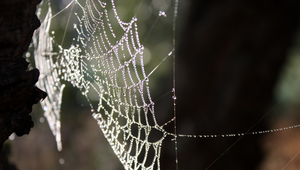“Love causes the fragments of life to look for each other in order to perfect the world.” (Teilhard de Chardin)
We can well split things up into tiny particles, following the impulse of our curiosity but in so doing we risk losing sight of the structural unity of all things. Due to the excessive fragmentation of learning content into and within the various subjects, organic and holistic learning is prevented. The big pictures of life, the living spirit of nature and the values of human culture cannot be taught when we jump, on an hourly basis, from subject to subject. This time-tabling communicates to the child that there are no thoughts worthy of remaining with or pursuing and so they are dissuaded from entering into more mentally developmental spaces.
Young children already have big questions about the world and life. They love big numbers and meta-level explanations; metaphysical and magical thinking and experiencing the fascinating infinity of the cosmos. Opportunities for this great astonishment and holistic experience of the world are lost when the schools focus too early on functional and logical-linear thinking. Also, through the increasing standardization of educational contents and performance tests, the size and diversity students’ potential is reduced to a narrow band of ‘measurable competencies’.
In the Escola da Esperança, the experiences of life and nature should be recognised as teachers for involved; teachers, parents and children alike. Why should the laws of nature and traditions of culture be studied only from books, when we are surrounded and embedded in nature and creation, in human communities and the intercultural diversity of the world? The use of our natural and cultural environments to develop discernment and for learning by doing is an important goal for us.
The use of special materials that stimulate the children and assist their learning, like sensory material, Mathematics material, Language material (Montessori) also supports the synergy of active research and cognitive understanding which is mentioned above. The engagement of all of the senses refines sensory perception which is another important prerequisite for learning and understanding. Every child has a natural urge to touch everything, to smell and to taste. Montessori deduces from this observation that children gain access to their thinking, including the ‘concrete operational stage’ (Piaget), not through abstract concepts but through their senses. Touch and comprehension are combined in the learning process.


